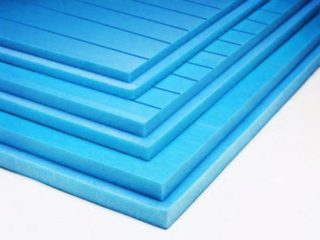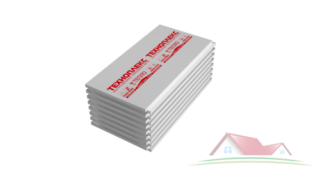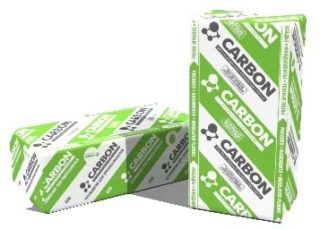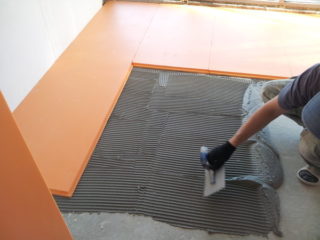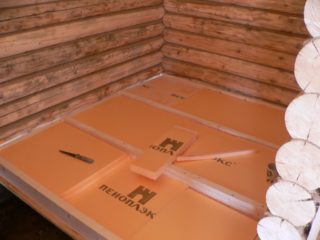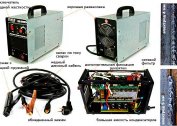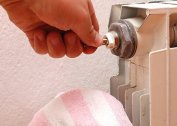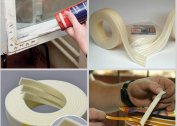The construction market is saturated with various materials with high thermal insulation properties. It can be polystyrene foam, mineral wool or polyurethane foam. If none of the listed options meets the specified requirements, you need to choose something else. A new and more advanced material is XPS insulation.
XPS insulation review
The acronym XPS conceals the concept of extruded polystyrene foam, which has become widespread among the materials used to warm any buildings. At its core, it is expanded polystyrene foam obtained by extrusion, which results in a fine-meshed material with a closed structure.
For its manufacture, the same raw materials are used as for polystyrene foam, however, the technical characteristics vary somewhat.
Main characteristics and properties
Houses or apartments insulated with xps polystyrene can reduce costs during the heating season and improve the thermal insulation of the room, preventing the appearance of dampness and mold on the walls.
Colour
In the technical documentation, the standard color for expanded polystyrene boards is white. But if for home insulation it is necessary to choose a material with higher thermal conductivity properties, preference should be given to silver plates of the insulation, which contains nanographite, which is responsible for improving the quality of the material.
Structure
Subject to the technical production process, the output should be a material with a dense and uniform structure. When buying polystyrene plates, this parameter needs to be paid special attention. The presence of grooves, voids, seals or other defects indicates a poor-quality product.
Ideally, the mesh size is 0.05-0.08 mm. It is difficult for a person without experience to notice this difference. In a low-quality product, the cell size is increased, it is 1-2 mm.
The finely porous structure of the XPS insulation is responsible for the minimum indicators of water absorption.
Weight and density
It was previously believed that the quality of thermal insulation depends on the density of the insulation. The higher it is, the more effective the protection. This opinion is erroneously imposed by small producers who save on various components in the manufacture of quality material. Large manufacturers are interested in creating a heater with a lower density, but with the preservation of its heat-insulating qualities. To do this, use blowing agents, flame retardants, stabilizers, dyes, etc. in the required quantity. Expanded polystyrene XPS, manufactured on modern equipment and subject to all technical standards with less weight, provides better thermal conductivity.
One example is Technonikol CARBON insulation, which contains nanographite. With a declared density of 28 kg / m³, the material is able to withstand loads of up to 300 kPA (this is about 30 tons per 1 m²).
If the presented material is marked 35 kg / m³ - this is an indicator of poor-quality material with low thermal conductivity.
The form
An experienced specialist, looking at the shape of the plates, can immediately say about the quality of the insulation. The best insulation of the room can be done with polystyrene boards, the edge of which has an L-shaped border.This provides a more snug fit of the insulation sheets when mounting on the wall. Plates that do not contain such a fringing will have to be additionally insulated with foam, which will increase the time and financial costs.
Thermal conductivity
This is the main characteristic of the foam, because of which it is chosen. A visual inspection will not say anything about this parameter, so you need to contact the supplier of the goods and ask for certificates. When comparing the data, you can choose the optimal type of insulation.
The thermal conductivity index of a quality product should correspond to 0.030 W / m-K. But these data can increase or decrease, depending on the type of finishing material and its composition.
Water absorption
This is another important aspect that you need to pay attention to when choosing a product. A small piece of polystyrene foam is needed to evaluate it. It must be placed in a glass of water and left for a day. As a result, you can estimate how much water the sample has absorbed and how much is left in the glass.
A fluid syringe is sometimes used to evaluate water absorption. With the help of a needle, an injection is made with water and, based on the size of the spot, conclusions are made about the quality of the insulation.
Strength
High-quality insulation should have high strength characteristics with low weight. This is very important in the finishing process, as no one needs additional problems during transportation and wall mounting. Even long-term storage of plates should not affect the shape and structure of the material.
Environmental friendliness and safety
High-quality extruded polystyrene foam is an absolutely harmless insulation for humans and the environment. One of the types of expanded polystyrene was awarded the quality label "Leaf of Life", confirming the environmental friendliness of the goods.
The use of insulation is regulated by the norms of SNiP 21-01-97, which refers to the fire safety of buildings and structures.
Lack of marking is a reason to familiarize yourself with a certificate for products sold. If there is no information on the environmental friendliness of the goods, it is better to refuse the purchase.
Material advantages and disadvantages
Extruded polystyrene foam has several positive qualities that justify the demand:
- high strength characteristics;
- thermal conductivity;
- heat resistance;
- fire resistance subject to labeling on the package G-1;
- resistance to chemical attack;
- resistance to mold and mildew;
- the ability to use at temperatures from -75 to +75 degrees;
- preservation of shape and structure during freezing and thawing.
There are several disadvantages:
- the possibility of fire (with the exception of insulation with the marking G-1);
- poor resistance to UV rays;
- Despite resistance to chemicals, some species can damage the material: acetone, petroleum toluene, ethyl acetate;
- high cost - this disadvantage is fully offset by the final result of the finish.
The price of XPS insulation forces some craftsmen to prefer a cheaper material - polystyrene.
Comparison of extruded polystyrene foam with foam:
| Characteristics | Expanded polystyrene | Styrofoam |
| Thermal Conductivity, W / Mk | 0,028 | 0,039 |
| Vapor permeability, mg / mchPa | 0,05 | 0,022 |
| Density, kg / m3 | 30-45 | 15-35 |
| Moisture absorption (for 24 hours) | 0,2 | 2 |
| Moisture absorption (30 days) | 0,4 | 4 |
| Resistance to bending, MPa | 0,4-1 | 0,07-0,2 |
| Resistance to compression, MPa | 0,025-0,5 | 0,05-2 |
| Flammability | G1 | G2 |
In assessing the characteristics of two materials, expanded polystyrene leads. However, the final choice always remains with the buyer.
Common sizes
XPS insulation boards are available in several sizes:
- 30x585x1185,
- 20x585x1185,
- 50x585x1185,
- 100x585x1185,
- 1200x600x50 mm.
Depending on the area of insulation, it is easy to calculate which plates to use. If necessary, any panel can be cut.
The calculation looks like this:
- Knowing the length and width of the facade, calculate the area.
- Find out the area of one plate. For example, 1 XPS insulation panel, size 30x585x1185, is 0.693325 m2.
- It remains to divide the facade area data by the area of 1 slab, and multiply the resulting number by 1.05-1.1 (taking into account the stock). Round the resulting number to integers.
Thus, it will be possible to find out the amount of material needed to finish the building.
Scope of an XPS heater
Low fire resistance of expanded polystyrene exclude the possibility of its use for interior decoration. Except when the premises are equipped with forced supply and exhaust ventilation and air conditioning.
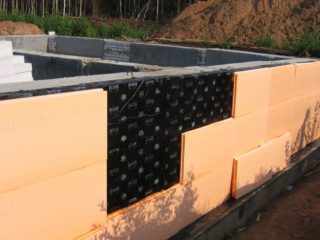
During the construction of houses it is used for insulation:
- roof structures
- foundation and cap
- gender
- facade.
Insulation for the facade can be used for plastering the building and for decoration under siding.
Expanded polystyrene is also used on an industrial scale, for insulation:
- tunnels
- parking;
- garages;
- airports
- runways;
- roads located on heaving soils.
A wide range of applications is explained by the durability of the material, which is estimated at 50-60 years.
Popular manufacturers
The construction market is in abundance represents goods manufactured by domestic and foreign manufacturers. Among the general flow, the largest can be distinguished.
| Company | Country | Product Feature |
| Eryap | Turkey | He is engaged in the production of Bonuspan panels, the microscopicity of which is practically zero. |
| Izocam | Turkey | A feature of products manufactured by the technology of American firms is light weight and increased strength characteristics. |
| Elite-Plast | Ukraine | A distinctive feature of the products under TM Penoboard is the blue color. The environmental friendliness of the material is controlled by the Kyoto Protocol, which eliminates the possibility of environmental contamination. |
| TechnoNICOL | Russia | The company provides a wide selection of thermal insulation products under TM TechnoNICOL and TECHNOPLEX |
| PENOPLEX | Russia | A distinctive feature of this manufacturer is the orange color of the finishing panels, which are available in three versions: with a rough surface, with an L edge and a P edge. |
| Fibran | Greece | The company produces Fibran Eco XPS boards, in the process of creating which freon is not used, which makes the products the most harmless. |
| Ursa | Germany | A company engaged in the production of plates with high thermal conductivity. The products are presented in three types: with a smooth and stepped edge, with a corrugated surface of the panels and with increased characteristics of thermal conductivity. |
Extruded XPS expanded polystyrene is considered an excellent heat insulator widely used in the domestic and industrial sectors. The only drawback of the insulation is the price, but it is offset by the quality of the work performed.
